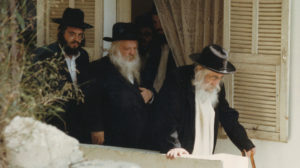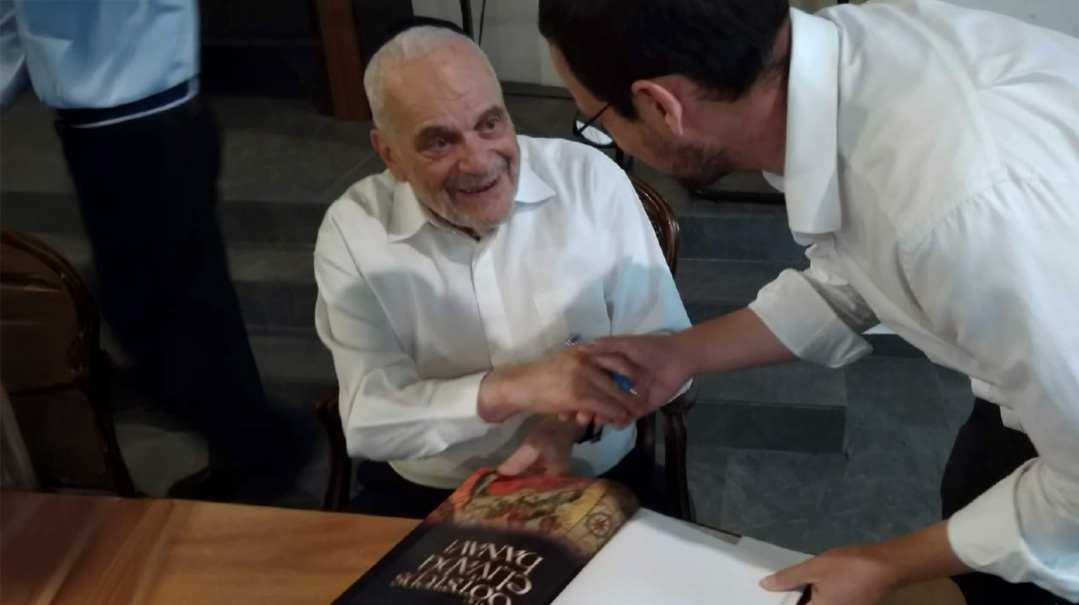Whatever Needed to Be Done
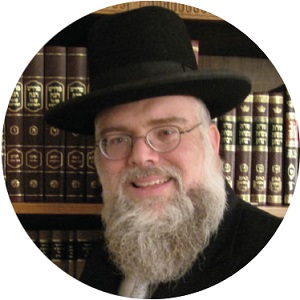
Mourning Reb Uri Mandelbaum, legendary principal of the Philadelphia Yeshivah
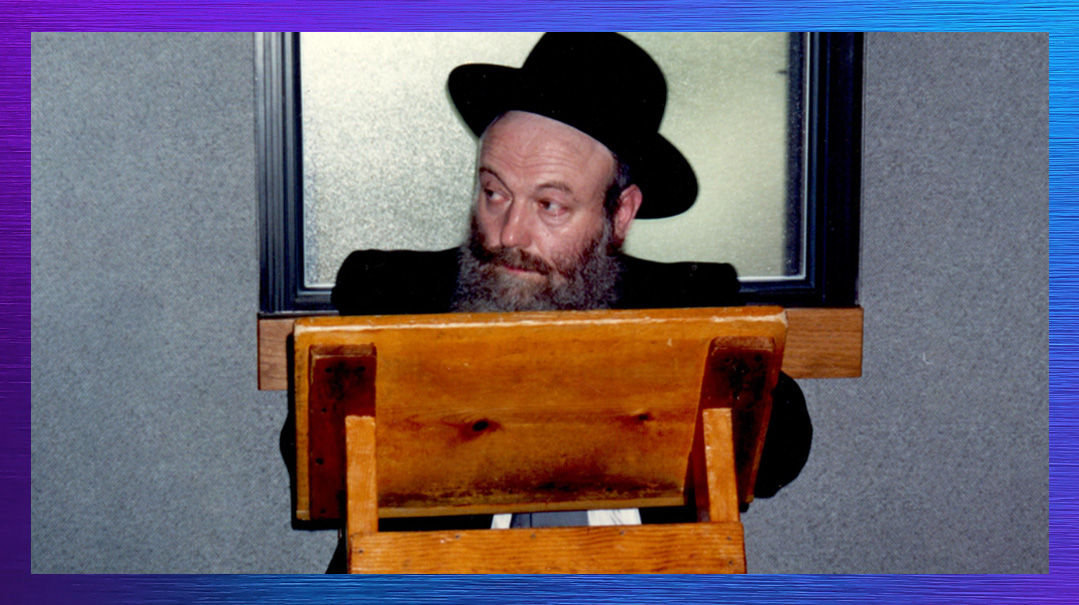
Photos: Family archives
Rav Uri Mandelbaum was a maggid shiur long before becoming menahel of the Philadelphia Yeshivah during our years, yet we were still his talmidim. Because his shiur was his middos, and the shiur room stretched beyond the yeshivah to include the entire city. But more than that, he was our safe haven in yeshivah, offering us unabated love with no strings attached, as if we were his own children
Back in the late ’70s, I was a talmid in the Philadelphia Yeshivah. Like all my friends, I was looking forward to Purim in yeshivah, when an unexpected snowstorm threatened to torpedo our plans. The “reid” circulating was that the roshei yeshivah were contemplating cancelling the yearly tradition of sending the bochurim out collecting tzedakah due to the danger associated with accumulating snow and slippery roads. We held our collective breath as Rav Elya Svei ztz”l and ybdlch”t Rav Shmuel Kamenetsky conferred at the amud in the beis medrash following Maariv, seeming to be purposely speaking loudly enough for those of us who were in close proximity to hear the debate. I clearly recall Rav Shmuel saying it was a siman min haShamayim that this Purim the bochurim should learn instead, whereas Rav Elya countered that “men darf mesameiach zein,” and perhaps an ad hoc mesibah could be arranged in yeshivah to supply the talmidim with an opportunity to celebrate safely. Soon after, the verdict was announced: There would be absolutely no collecting, and plans would be put into place to provide simchas Purim on our home turf.
One of my friends, who couldn’t imagine the possibility of a stay-at-home Leil Purim, approached me a short while later and confided in me that he had access to a car. He proposed that several of us clandestinely defy the edict and leave the yeshivah Purim night. Not wanting to appear weak, I agreed to come along and hoped for the best. What could happen already?
Here’s what could happen: Not too far out of the neighborhood, with the snow coming down with what seemed to be Siberian fury, the jalopy we were driving began to sputter and groan, and soon came to a complete stop. Nobody had bothered to check the gas gauge before we left, and sure as the landscape was completely white, we were out of gas.
In desperation, the only exit plan we could think of was to call Reb Uri. Rabbi Uri Mandelbaum (who asked that we call him “Reb Uri,”) was the yeshivah’s legendary menahel. While we knew full well that once the hanahalah found out what we’d done we’d be toast, we figured it was better than waiting around to be found by some inner-city hoodlums. We walked to the nearest pay phone (for those who don’t know what that is, ask an elder) and dialed, hoping against hope that he would be home.
“Where are you? I’ll be right there,” Reb Uri answered. In pretty short order, and after lots of silent prayer, Rebbi showed up with a container of the precious black gold, reminded us there was a mesibah in yeshivah, and wished us a freilichen Purim.
In his 55 years in Philly, from when Rav Aharon Kotler sent him to assist the roshei yeshivah, Reb Uri played a significant role in the yeshivah, first as a maggid shiur and then as the menahel. But perhaps, most importantly, he was also a friend. He was our safe haven in yeshivah, offering us unabated love with no strings attached, as if we were his own children. One of the most cherished pictures I own is one of Reb Uri sitting in our succah on a snowy day. He was spending Yom Tov with his son and family who happen to live across the street. My son, a Philadelphia talmid himself, was making a siyum on Chol Hamoed, and invited Reb Uri to participate. He came and offered divrei brachah, undoubtedly quoting Rav Leib Chasman, as was his custom. When I look at this picture it reminds me of the snow of a bygone Purim and the love that came along with it.
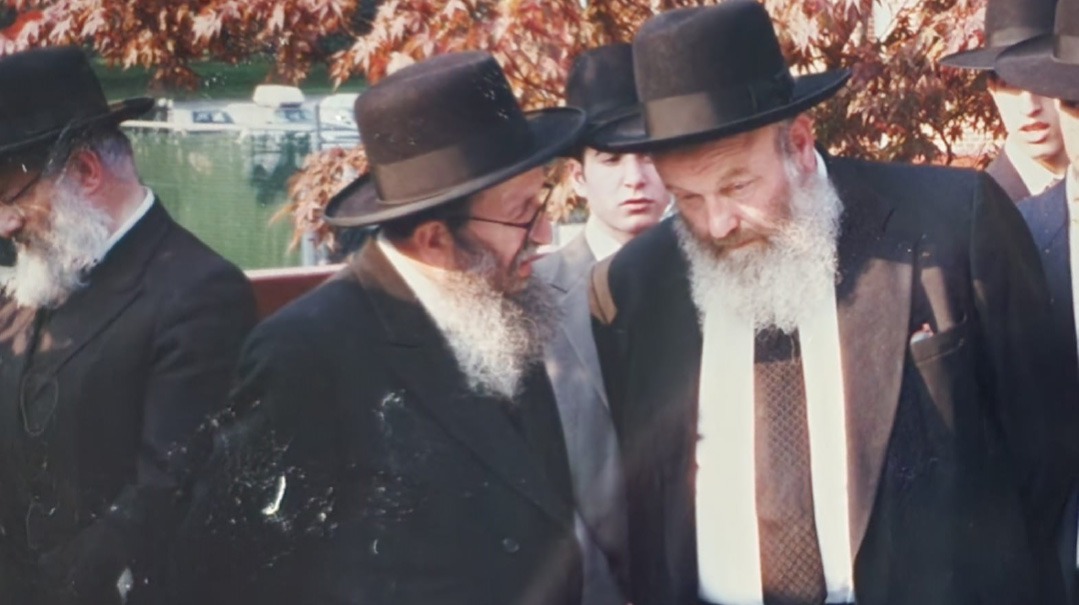
From the time Rav Aharon Kotler sent him to assist the Philadelphia roshei yeshivah, he was more than just a maggid shiur and then a menahel. He was the yeshivah, and the yeshivah was him
Before he became menahel, he was a maggid shiur. By the time I arrived in yeshivah he was already at the helm of the institution, no longer giving shiur, but we were still his talmidim. His shiur was his middos, and the shiur room was the entire yeshivah and city of Philadelphia (and beyond). He seemed to know the whole world and their relatives. It wasn’t a knack for Jewish geography that motivated him to create this mental registry, but his caring, and a sense that perhaps storing this information could help someone else down the road.
He knew exactly what tone of voice to use when pointing out something that needed correction, when asking assistance for a devar mitzvah, or when taking a bochur to task for skipping Mr. Ranft’s English class. Reb Uri was the English principal while I was in high school (there was nothing he couldn’t do), and I recall how bochurim would complain to him, either about the material being taught or the teacher himself. He always stayed so calm, reassuring you that everything would be taken care of. He had this knack of getting to the heart of a matter; more often than not he saw right through a bochur’s gripe and was able to point out where it was really coming from. He was also able to show the teacher’s side as well, giving fresh perspective to every conflict. You never walked away feeling put down or dismissed, even if you were dead wrong.
The role of mechanchim today is to reach their talmidim through “hagba’ah,” raising them, explained Rav Hutner. Reb Uri was the quintessential magbiah. I was once within earshot when he reprimanded one of his sons. He didn’t scream, or even raise his voice. You could tell he meant business, but it was equally clear that he wasn’t interested in punishment, only in propelling a nefesh to its greatest possible heights. Rav Yaakov Moshe Willner, who succeeded Reb Uri as menahel, expressed his incredulity at how Reb Uri was mechabed him, his successor, despite the vast age gap between them and the fact that Rav Willner had been his talmid many years earlier. But to Reb Uri, it was never a question. He was there to raise up those around him.
As a young high school bochur, I approached Reb Uri and told him I had absolutely no working knowledge of anything in Yoreh Dei’ah (What bochur does?) and that I felt like a total ignoramus in that area of Torah. Without blinking, he offered to learn with me bein hasedarim, a seder that not only broadened my horizons in learning, but gave me an unbreakable love and respect for the man who was already everything else in the yeshivah.
While his name may not have been familiar to the general public, he was hardly a nistar to other menahalim and roshei yeshivah who sought his guidance and keen assessment on every matter pertaining to proper management of a yeshivah, including governmental issues. I heard from one of Reb Uri’s sons that the yeshivah was once audited, and the individual conducting the audit asked the rosh yeshivah, Rav Shmuel Kamenetzky, who was in charge of various departments and functions. Rav Shmuel kept offering the same answer: “Rabbi Mandelbaum.” Incredulous, the auditor asked the Rosh Yeshivah how it was possible that one person held so many responsibilities. Rav Shmuel replied that obviously he simply hadn’t met Reb Uri yet.
Reb Uri’s influence extended beyond that scope of the yeshivah. Whether it was bikur cholim, taking care of families who needed to be in Philadelphia for medical care, or building the mikveh, Reb Uri could always be relied on. His caring was boundless. When I was already a parent of a Philly talmid, at one point I was between jobs, and our financial situation fluctuated accordingly. Reb Uri called me and insisted I lower our tuition payment. He wouldn’t allow us to resume our commitment until I was settled in my new job, and we were sure it wouldn’t cause hardship.
Rav Shmuel Birnbaum ztz”l, the Mirrer rosh yeshivah, had a beautiful insight about why the stones that were placed in the Choshen and Ephod were called avnei miluim, filler stones. There is nothing more precious, explained the Rosh Yeshivah, than filling in those spaces that are empty, either because they haven’t been filled yet, or even more so, because nobody wants to fill them.
The vort encapsulates who Reb Uri was. He did everything nobody else would have or could have done.
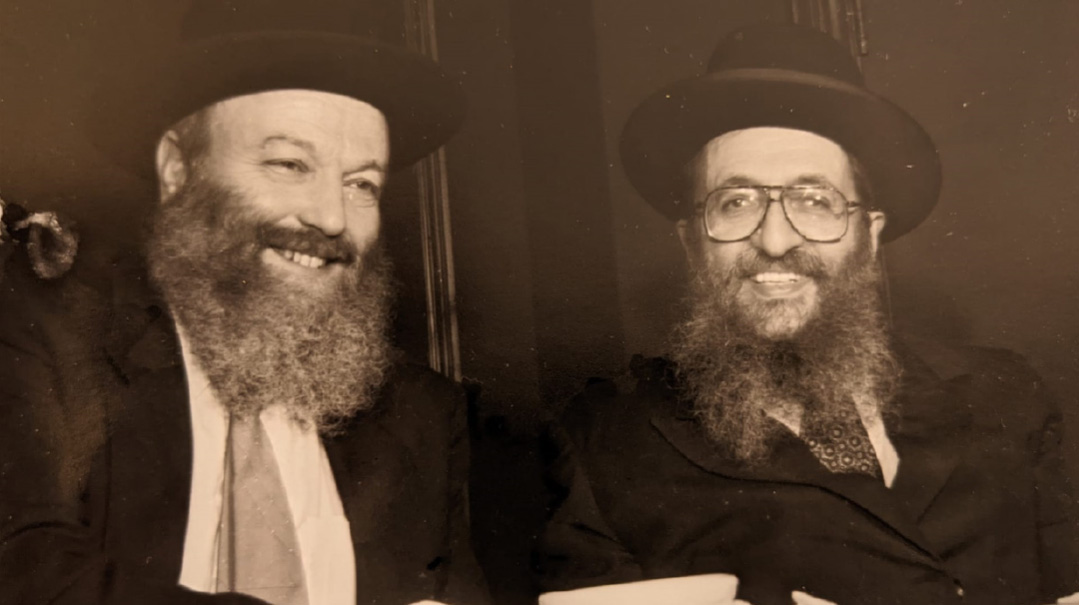
Reb Uri’s willingness to be there for anyone who needed him was noteworthy, but the yeshivah was always the axis around which his world rotated. An interaction I had with Reb Uri as a bochur highlighted that, but it’s only with the perspective of the years gone by that I appreciate its depth. By process of elimination, I was selected to be the valedictorian at our twelfth grade graduation. (The details aren’t relevant, but suffice it to say the appointment had nothing to do with merit or my proficiency in Shas or chemistry.) I approached Rav Shmuel and asked what the topic of my speech should be. His response was short and to the point: “Ask Reb Uri.”
I made a beeline to the menahel and Reb Uri, as if on cue, responded with the following mandate: “Make it clear that you learned in this yeshivah.” He then asked me to please come back to him with my speech and share it with him. There was indeed one line that he felt was inappropriate and smacked of kana’us unbecoming of a young man my age, and it was redacted from the speech.
It took me a few decades to truly appreciate what he was saying. When my son graduated from this same hallowed institution many years later, I was asked to speak as well, as was the common practice when a graduate had a parent in meleches hakodesh. When Reb Uri called to ask me if I would accept the invitation, I asked him what I should wear, my regular weekday short jacket and down hat, or my long rabbinical frock that was more distinguished, but would make me uncomfortable in front of my rebbeim who were going to be in attendance. Reb Uri responded, “We’re not asking you to come as Sheah Plotnik’s Tatte. You are being invited as an alumnus of the yeshivah, and you must dress accordingly.” I could hear his smile over the phone as we spoke for another few minutes and reminisced about my years back in yeshivah, and how I’d asked him his advice on what to say when I myself had graduated
It was only then that I came to appreciate that long-ago conversation. Reb Uri’s entire perspective on everything was through the prism of “the yeshivah.” What is appropriate for the yeshivah, what represents the yeshivah, how do people perceive the yeshivah, and on and on. His entire being was wrapped up in the yeshivah, and his greatest pride was its success. He took so much pride in talking about the yeshivah’s growth over the years.
I once commented to him how the fledgling yeshivah I was teaching in was small, and not at all impressive like Philly. With his trademark warmth and smile, Reb Uri was quick to reassure me that the Philadelphia Yeshivah hadn’t always looked like this either. “Do you think we used to have bochurim in the beis medrash on Erev Shabbos and bein hasedarim like today?” he asked. “Im yirtzeh Hashem, if you dedicate your kochos to your yeshivah, one day it will look exactly the same.” And he was right.
That was the secret of his success. He was the yeshivah and the yeshivah was him. He lived and breathed it, and we all saw that every minute of every day.
I merited to be in Eretz Yisrael shortly after Reb Uri’s levayah following his petirah on Tisha B’Av, and with the assistance of his sister who lives there, I was able to locate his kever and thank him for everything he did for all of us. I couldn’t leave Eretz Yisrael without doing that, and I thank Hashem for that opportunity. This was a man who personified what his great rebbi, Rav Aharon Kotler, would point out on the words we say in the Mussaf of Shemoneh Esreh of Rosh Hashanah, “ma’aseh ish u’fekudoso,” that Hashem pays attention to the actions of man and his appointed purpose. We were all put here for a purpose and need to fulfill it. Some convince themselves that their tafkid is to be a rosh yeshivah or at least a maggid shiur. Others, like Reb Uri, believed his tafkid was to do what needed to be done. And he did it.
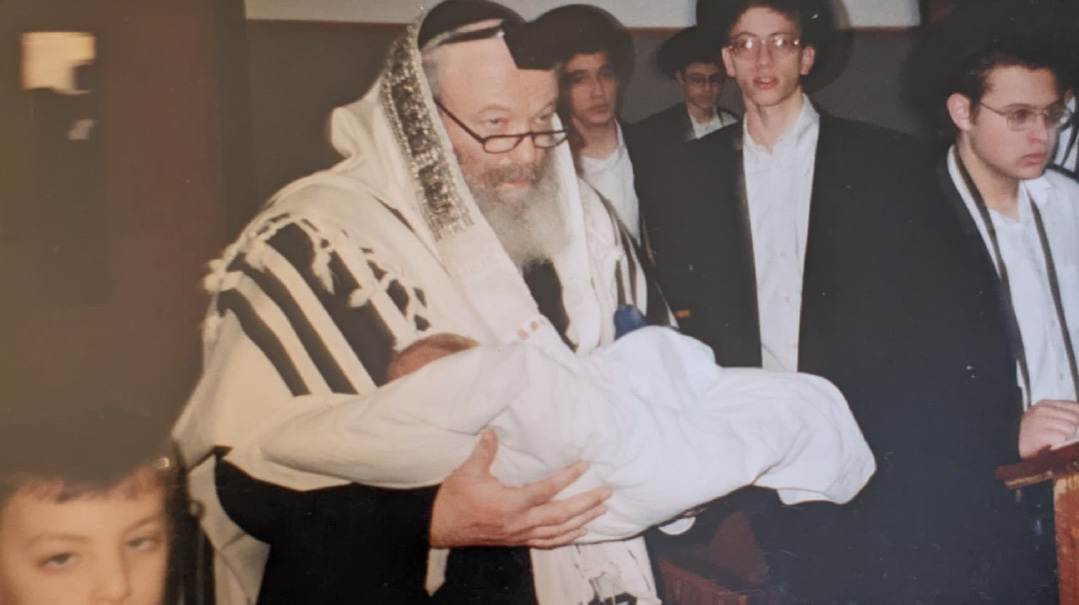
We knew we could always count on Reb Uri. Because for him, each of us was like his very own child
Reb Uri himself once remarked how his purpose in life was simply to carry out the Will of Hashem. And when called upon to live the truth of that statement, he rose to the occasion. He suffered for over a decade from the ravages of ALS, but while his body was trapped, he never let the limitations affect his soul. In his later years, he taught generations of talmidim, not from the K’tzos HaChoshen, but by example. His transmission of divrei Torah to his family despite unimaginable difficulty, and his insistence on davening in the Yeshivah’s minyan despite all obstacles, will go down in history as an example of living out a purpose until its absolute end. His greatness in Torah, in avodah, and in chesed, are mechayev anyone who knew him. Akin to Hillel who used his meager portion of money to enable himself to learn, and about whom the Gemara says, “Hillel mechayev es ha’aniyim — Hillel obligates the poor people,” we can say with complete confidence, “Reb Uri mechayev es ha’assurim (those who are tied up).” And his eishes chayil and children are perhaps mechayev the entire world as well, as a model of devotion to and partnership in that greatness.
Family, friends, and talmidim were all beneficiaries of Reb Uri’s unlimited chesed and ayin tovah, and each has a unique perspective to share about his multifaceted personality, not unlike the precious stones that the Kohein Gadol wore on his heart and his shoulders, the quintessential avnei miluim. We are all feeling the void now. May Reb Uri be a meilitz yosher for his talmidim, his family, and everyone whose lives he filled with everything they needed.
Yehi zichro baruch.
(Originally featured in Mishpacha, Issue 926)
Oops! We could not locate your form.






